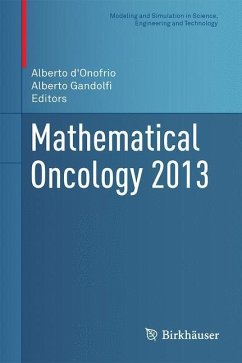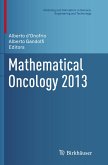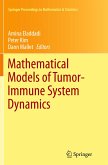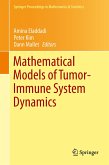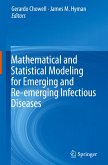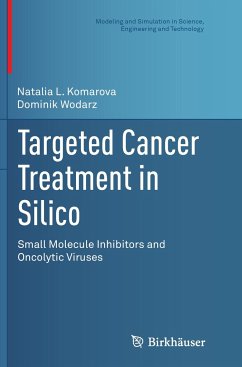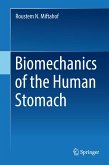With chapters on free boundaries, constitutive equations, stochastic dynamics, nonlinear diffusion-consumption, structured populations, and applications of optimal control theory, this volume presents the most significant recent results in the field of mathematical oncology. It highlights the work of world-class research teams, and explores how different researchers approach the same problem in various ways.
Tumors are complex entities that present numerous challenges to the mathematical modeler. First and foremost, they grow. Thus their spatial mean field description involves a free boundary problem. Second, their interiors should be modeled as nontrivial porous media using constitutive equations. Third, at the end of anti-cancer therapy, a small number of malignant cells remain, making the post-treatment dynamics inherently stochastic. Fourth, the growth parameters of macroscopic tumors are non-constant, as are the parameters of anti-tumor therapies. Changes in theseparameters may induce phenomena that are mathematically equivalent to phase transitions. Fifth, tumor vascular growth is random and self-similar. Finally, the drugs used in chemotherapy diffuse and are taken up by the cells in nonlinear ways.
Mathematical Oncology 2013 will appeal to graduate students and researchers in biomathematics, computational and theoretical biology, biophysics, and bioengineering.
Tumors are complex entities that present numerous challenges to the mathematical modeler. First and foremost, they grow. Thus their spatial mean field description involves a free boundary problem. Second, their interiors should be modeled as nontrivial porous media using constitutive equations. Third, at the end of anti-cancer therapy, a small number of malignant cells remain, making the post-treatment dynamics inherently stochastic. Fourth, the growth parameters of macroscopic tumors are non-constant, as are the parameters of anti-tumor therapies. Changes in theseparameters may induce phenomena that are mathematically equivalent to phase transitions. Fifth, tumor vascular growth is random and self-similar. Finally, the drugs used in chemotherapy diffuse and are taken up by the cells in nonlinear ways.
Mathematical Oncology 2013 will appeal to graduate students and researchers in biomathematics, computational and theoretical biology, biophysics, and bioengineering.

